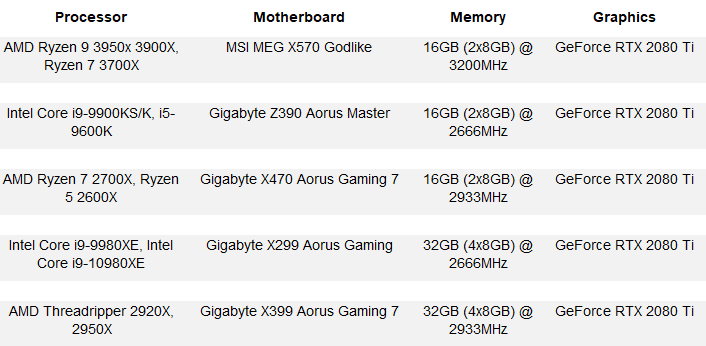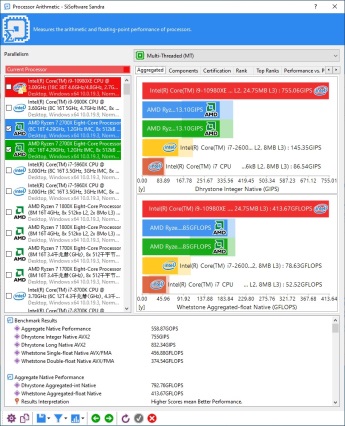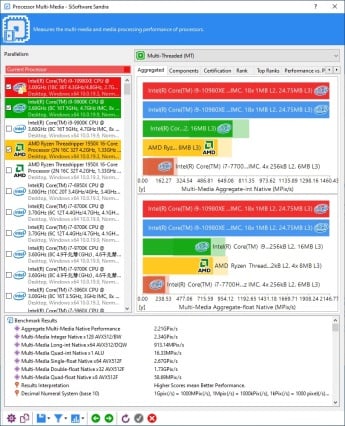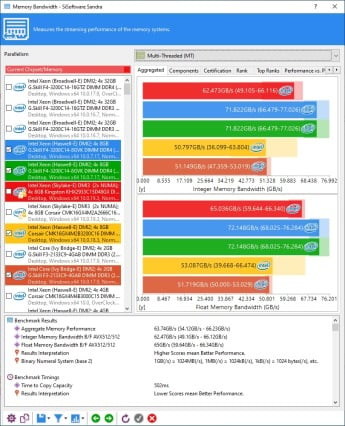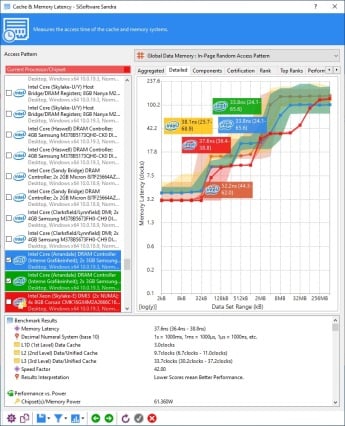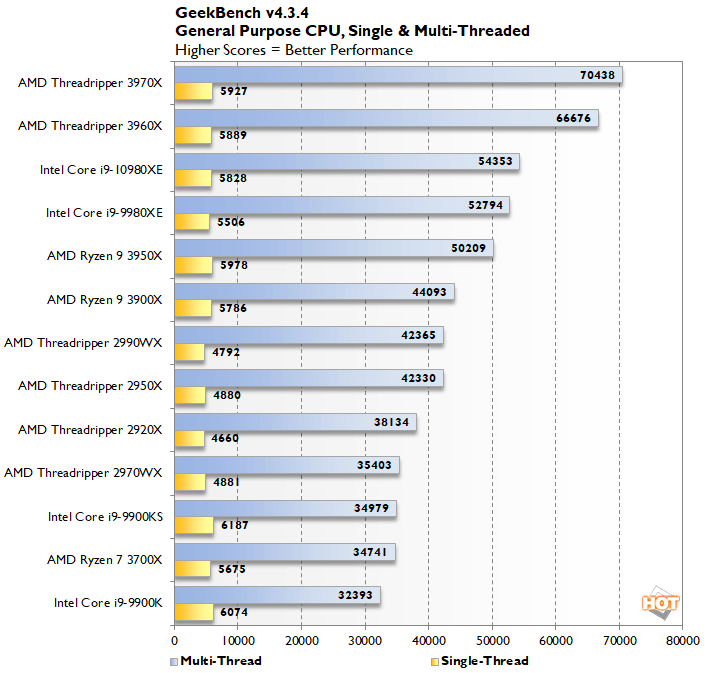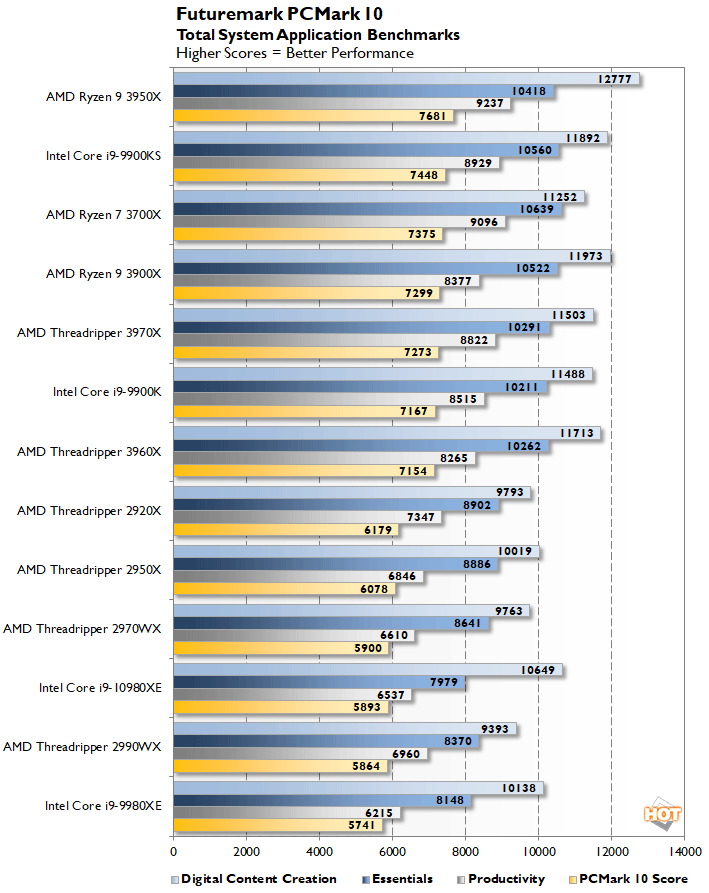Test System Configuration Notes: When configuring our test systems for this article, we first made sure all firmwares were up to date, then we entered each system's respective BIOS /
UEFI and set each board to its "Optimized" or "High performance" defaults. We then saved the settings, re-entered the BIOS and set the memory frequency to the maximum officially supported speed for the given platform (without overclocking). The
SSDs were then formatted, and the latest build of Windows 10 Pro x64 was installed and fully updated.
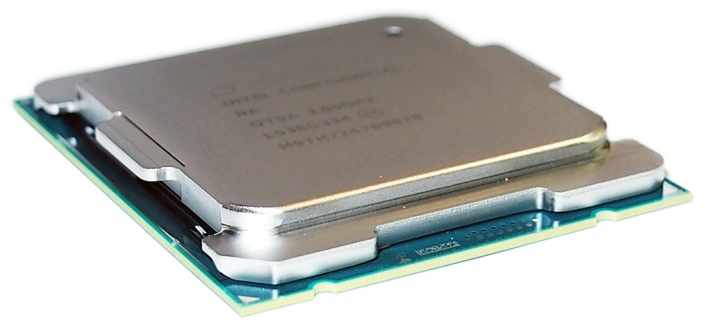
The Intel Core i9-10980XE
When the Windows installation was complete, we installed all of the drivers necessary for our components, disabled Auto-Updating and Windows Defender, and installed all of our benchmarking software. When that process was done, we performed a disk clean-up, cleared any temp and prefetch data, and optimized all of the SSDs using Windows' built-in utility. Finally, we enabled Windows Focus Assist to minimize any potential interruptions and let the systems reach an idle state before invoking a test.
 |
| HotHardware's Test Systems |
| Intel and AMD - Head To Head |
|
 |
| Preliminary Testing with SiSoft SANDRA 2020 |
| Synthetic Benchmarks |
|
We began our testing with the latest version of SiSoftware's SANDRA 2020, the System ANalyzer, Diagnostic and Reporting Assistant. We ran four of the built-in sub-system tests that partially comprise the suite with the Core i9-9900KS (CPU Arithmetic, Multimedia, Cache and Memory, and Memory Bandwidth). All of the scores reported below were taken with the CPU running at its default settings, with 32GB of DDR4 RAM running at 2,933MHz, in quad-channel mode, on the Gigabyte X299 Aorus Gaming motherboard.
 |
|
Geekbench |
|
Synthetic CPU Testing |
|
In the GeekBench test, we're stressing only the CPU cores in a system (not graphics or GPU architecture), with both single and multi-threaded workloads. The tests are comprised of encryption processing, image compression,
HTML5 parsing, physics calculations and other general purpose compute processing workloads.
The Core i9-10980XE puts up the strongest multi-threaded score of all of the Intel desktop processors, due to its slightly higher clocks. It's single-threaded score shows a nice boost in performance versus the 9980XE, but it's not quite as fast as the higher-clocked
Core i9-9900KS, which also features a somewhat newer microarchitecture.
 |
| PCMark 10 |
| System Level Benchmark |
|
Next, up we have some full-system testing with PCMark. We're reporting all test results from the PCMark 10 benchmark suite, including the Essentials, Productivity, Digital Content Creation and and total PCMark score. The Essentials test covers workloads like web browsing, video conferencing and app start-up times, while Productivity tests everyday office apps from spreadsheets to word processing. Finally, the Digital Content Creation test evaluates performance of a machine with respect to photo and video editing, as well as rendering and visualization.
Save for a few sub-tests,
PCMark 10 doesn't fully exploit all of the capabilities of Intel's current HEDT processors, hence their positions toward the bottom of the stack here. The Core i9-10980XE does show a healthy bump versus the Core i9-9980XE, but if tooling around in Office and Productivity apps takes up the majority of your time, higher-clocked, lower-power, more affordable mainstream processors are a better choice.
